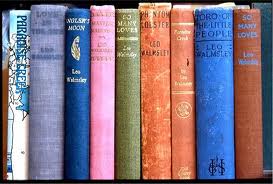Author's note: This review is my work and has appeared in Online Book Club as well. The link for the OBC review: https://forums.onlinebookclub.org/viewtopic.php?f=31&t=377704&p=2365301#p2365301
After a great deal of procrastination, I finally sat down to give the review for this book. There is certainly no shortage of media criticism, both shaky and valid, for the United States political system. Depending on which way you lean politically, it is possible to find a ton of books both supporting and bashing any one political philosophy. I picked this book hoping to get an interesting angle or something new.
Just to be clear, I find political criticism as valid as any other criticism – when it’s done constructively and with a valid foundation. Unfortunately, it’s become rather a sport lately in the United States to just shout about what is wrong. You can turn on any news channel for examples. I also believe that by this point in time, there are very few people who are still naïve enough to believe that anything to do with politics or the government is one sided.
I found this book to be very basic in it’s explanations of how the United States has reached this point. Not incorrect I would say, but definitely a surface level look. And perhaps that was the point. However, there are no perfect political systems, and every single one has reached it’s current state through a long line of decision, human judgement errors, and straight up greed occasionally. It’s not a simple scenario getting here, so taking a bit more time to delve into the causes can help the reader understand that the system is a titanic, not a speed boat that can make u-turns at the drop of a hat. It takes a great deal of time, energy, and willingness to change the system even a small bit. I get it, solving things through political revolution sounds sexy. It’s a great eye catcher on a book title. But a revolution is no simple thing to successfully execute and with the political climate in the US what it is today, getting people fired up should not be the goal. People are already far too fired up for the wrong or even no reasons.
In fairness, I really hate to pick on people who (as it appears to me) are trying to improve the condition of anything. Unfortunately, I also have very little patience for people who get worked up, or work others up, for a flash satisfaction that leads nowhere. Aside from a slightly patronizing tone, the book was well written, though as I mentioned above, I feel the ration of pages with problem and solution could have been a little more even. Overall it was written from an academic standpoint, which I can appreciate, and was well edited.
In a tide of political and government oriented books, this one just didn’t stand out in any special way for me. My verdict is as follows: Read it if you’re curious, but there are plenty of other books out there that achieve the same objective in a better way.
